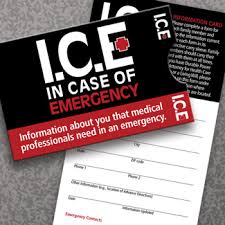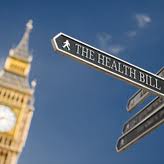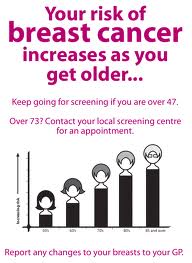Being proactive about maintaining your health is important. Physical and mental well-being enhances life and helps people to enjoy a good social life. Besides eating a health diet and taking exercise, it is important to ensure that opportunities for maintaining a health body are maximised.
Also, particularly if you live on your own, consider participating in the ‘Message in a Bottle’ scheme promoted by the local Lions Club. The ‘message’ is a record of your medical details, current medication and details of next of kin or emergency contact on a standard form. The form is then kept in the ‘bottle’ in a common location – the fridge. To alert emergency services that you are part of the scheme, a sticky label is displayed, preferably inside your front door and another on your fridge door. Bottles are available from most pharmacies. (For further details click on the image).
If you have a hidden medical condition or a life-threatening allergy, you might consider wearing a medical alert bracelet or other jewellery. The charity MedicAlert supplies jewellery together with a 24hr emergency information service, if you provide them with your medical details. Other jewellery suppliers include the ID Band company. The jewellery uses globally recognised symbols – useful if you’re a frequent traveller.
 Also you might consider carrying an In Case of Emergency (ICE) in your wallet or storing an ‘ICE’ telephone number in your mobile phone. For further details, see the ‘Alerts’ page.
Also you might consider carrying an In Case of Emergency (ICE) in your wallet or storing an ‘ICE’ telephone number in your mobile phone. For further details, see the ‘Alerts’ page.
.
Whilst most of this page emphasises how you can help to maintain your health, it is worth highlighting that, should you need it, there is health and treatment advice published by the Harrogate and Rural District Clinical Commissioning Group (HaRD CCG) and NHS.
The NHS recognises that preventative measures are much more cost-effective than treatments and there are lots of opportunities for you to optimise your health. Here are just a few examples:
Flu jabs
 From October, each year, vulnerable adults and those over 65 years of age are reminded by their GP that flu jabs are available. While the Department of Health annually recommends them and issues targets for take-up, there has been a lack of enthusiasm by some groups. It is important that those at risk are protected. For each individual the choice is about protecting oneself and protecting others. If you are not sure what to do NHS Choices has information: http://www.nhs.uk/conditions/vaccinations/pages/who-should-have-flu-vaccine.aspx
From October, each year, vulnerable adults and those over 65 years of age are reminded by their GP that flu jabs are available. While the Department of Health annually recommends them and issues targets for take-up, there has been a lack of enthusiasm by some groups. It is important that those at risk are protected. For each individual the choice is about protecting oneself and protecting others. If you are not sure what to do NHS Choices has information: http://www.nhs.uk/conditions/vaccinations/pages/who-should-have-flu-vaccine.aspx
Sight tests
 These are free for anyone over 60 years of age. Changes in vision may not be obvious and slight changes may occur form one year to the next. As well as optimising vision, the sight test provides the opportunity to check on the health of the eye which may indicate changes in general physical health. For example changes in the retina at the back of the eye can indicate damage caused by hypertension or diabetes. While the onset of cataracts may be observed before any visual deficit is experienced.
These are free for anyone over 60 years of age. Changes in vision may not be obvious and slight changes may occur form one year to the next. As well as optimising vision, the sight test provides the opportunity to check on the health of the eye which may indicate changes in general physical health. For example changes in the retina at the back of the eye can indicate damage caused by hypertension or diabetes. While the onset of cataracts may be observed before any visual deficit is experienced.
Following a sight test, the optician will be able to advise you about the need to wear spectacles and whether or not your prescription has changed. There will also be the opportunity to discuss which types of lens will best suit your needs and lifestyle. Many opticians offer reduced rates for older people and some are entitled to vouchers to pay for the cost of spectacles. Care should be taken if considering purchasing on-line.
Hearing tests
 Some opticians also offer hearing tests. These basic tests, which are free, can provide an indication of the general state of hearing and, in some cases, may indicate the need for more specialised hearing tests to establish the cause of any hearing deficit. Tests to establish cause and possible remedy are normally performed, following a referral to an audiology clinic. It is important not to ignore hearing loss, as the brain adapts to the gradual loss and will find it more difficult to adjust to the increase in sound, when a hearing aid is worn. When you first start wearing a hearing aid, it can take about 4-6 weeks for the brain to adjust. Click here for further information.
Some opticians also offer hearing tests. These basic tests, which are free, can provide an indication of the general state of hearing and, in some cases, may indicate the need for more specialised hearing tests to establish the cause of any hearing deficit. Tests to establish cause and possible remedy are normally performed, following a referral to an audiology clinic. It is important not to ignore hearing loss, as the brain adapts to the gradual loss and will find it more difficult to adjust to the increase in sound, when a hearing aid is worn. When you first start wearing a hearing aid, it can take about 4-6 weeks for the brain to adjust. Click here for further information.
Hearing aids are becoming increasingly sophisticated and the choice of style can be bewildering. Before deciding to purchase a hearing aid, it is important to get impartial advice about the options. A really useful booklet is: ‘All you need to know Guide to buying Hearing Aids’ 7th edition available via telephone: 0800 488 0106.
Dental health
 Dental health is important, not only for maintaining good nutrition but also for physical health. Micro-organisms from untreated gum disease and poor dentition can enter the bloodstream and cause damage to the heart. Regular check-ups at the dental surgery can help to minimise this risk.
Dental health is important, not only for maintaining good nutrition but also for physical health. Micro-organisms from untreated gum disease and poor dentition can enter the bloodstream and cause damage to the heart. Regular check-ups at the dental surgery can help to minimise this risk.
Likewise, people wearing dentures need to ensure that they fit well. Partial dentures relying for anchorage to neighbouring teeth can damage them. While full dentures may suffer damage from wear and tear, or become ill-fitting as the tissues in the mouth alter with age. Dentures which no longer fit properly can cause sores or may make wearing them impossible. This can have a negative effect on nutrition and physical health, as well as causing possible social embarrassment.
There a various ways of finding a dentist: personal recommendation (very useful), Yellow Page or an internet search engine. One of the easiest search facilities is provided by the British Dental Association and it’s easy to remember! www.bda-findadentist.org.uk
Dental treatment is available on the NHS. A list of dental treatment fees is provided by NHS UK and you can check if you’re entitled to any benefits to help you meet the cost. However, private treatment is also available, the costs of which may be mitigated by taking out a dental insurance plan, such as those offered by Denplan or Simply Health, for example.
Screening programmes
Breast Cancer
Screening for breast cancer is offered every 3 years to all women over the age of 50yrs up until 70 yrs of age. The upper age limit is to be extended to 73yrs by 2016. 
However, if you wish to continue to be screened beyond the upper age limit, you can request a screening very 3 years from your local unit. As well as regularly screening, it is important that self-examination is regularly performed to maximise early diagnosis, because the latest figures suggest that one third of breast cancers occur in women over 70 years of age.
To obtain the information about the latest recommendations click here Further information is available from NHS UK
Bowel Cancer
Screening is for patients without symptoms and is offered approximately every 2 years to most people over the age of 60yrs. Unless you indicate otherwise, you will be sent a kit with clear instructions for its use. By 2014 the screening service will be available to everyone up to the age of 74yrs. In the meantime, if you are over 70yrs and wish to be screened, you can tel: 0800 707 60 60 to request a kit.
 As previously stated this screening is for people without symptoms. If you are worried about a change of bowel habit or about possible symptoms, you should contact your GP as soon as possible.
As previously stated this screening is for people without symptoms. If you are worried about a change of bowel habit or about possible symptoms, you should contact your GP as soon as possible.
You may have heard about another type of screening which is being performed in other parts of the country. As yet, this is only a pilot study about the use of ‘bowel scope’ screening, to assess its efficacy as part of the general screening programme. The information leaflet describes the procedure, which may also be used to investigate people with possible symptoms.
Cervical Cancer
Females between the ages of 25 – 49yrs are offered screening every 3 years. Afterwards, screening is for females between the ages of 50 – 64yrs who are without symptoms and is performed every 5 years.
Prostate Cancer
 Currently there is no nationally organised programme for screening for prostate cancer. However, it is important that you are aware of any possible signs and symptoms, so that you can discuss with your GP any concerns you may have.
Currently there is no nationally organised programme for screening for prostate cancer. However, it is important that you are aware of any possible signs and symptoms, so that you can discuss with your GP any concerns you may have.
Exercise
It is unusual to open a magazine or newspaper without coming across an article about the benefits of exercise on physical and mental well-being. The important thing is to find an activity which you enjoy.
 There is no point in taking out a subscription to a fitness centre or gym, if you don’t like that type of exercise. Much better to find a social activity such as dancing, rambling or maybe cycling.
There is no point in taking out a subscription to a fitness centre or gym, if you don’t like that type of exercise. Much better to find a social activity such as dancing, rambling or maybe cycling.
For eligible patients, there is an exercise referral scheme which offers reduced rates to participate in a supervised physical activity programme with qualified instructors, at gyms or leisure centres. Ask your GP for further details.
For general information about exercise and health, please click here
Another useful link is: Swimming baths and fitness centres in Harrogate district
For further ideas about activity groups in the area, please look at the Special Interest Groups page.
As well as improving your physical health, exercise can also enhance your mental health. Social interaction with others, particularly while participating in a group activity, can give a boost to your general feeling of wellbeing.
Mental Health
The importance of maintaining mental health and a feeling of wellbeing has received a lot of coverage in the media in recent years. A recent study by Pantell identified that social isolation was a predictor of mortality comparable to traditional risk factors such as hypertension, smoking obesity and high cholesterol. Recently there has been an emphasis on the need to combat the feeling of isolation and loneliness, which is experienced by some older people. Indeed, this is one of the reasons our forum was formed. In the Harrogate district, there are many people who live alone and, whether in a remote village or in town, may feel isolated due to their current circumstances. They may have been recently bereaved, have increasing difficulties with mobility or feel isolated by sensory impairment such as the loss of sight or hearing.
However, there is evidence to suggest that the incidence of anxiety and depression can increase with age. It is important that people experiencing these problems should recognise the symptoms and discuss them with their GP. Nor should it be forgotten that anxiety and depression may be a side-effect of medication, which might be reduced or avoided by a change to an alternative preparation, if possible. Depression is also associated with other health problems such as diabetes.
Financial hardship can be a great source of stress and the risk of debt and homelessness may seem overwhelming. Even if individuals feel unable to discuss their problems with others, if they can socialise, they may hear other people discussing their own problems and thereby feel less vulnerable.
There are many organisations who offer support and advice to those who need it. Contacts for these can be found on the ‘Organisations‘ page.





